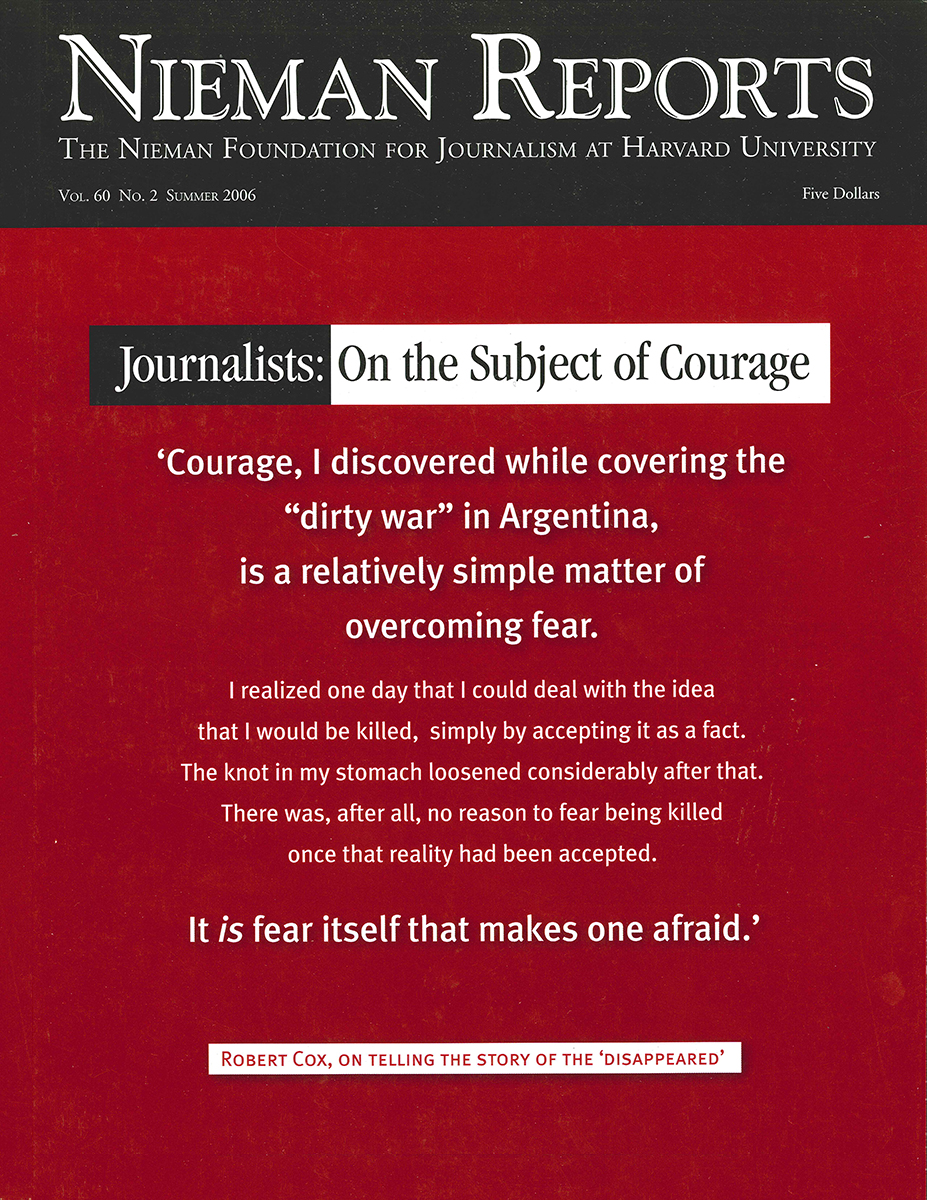Faced with vigorous new competition and declining revenues, network television news is increasingly behaving as though oblivion is only a few fiscal quarters away. Short-term profit is trumping long-term viability. Compromise is defeating consistency. Courage — acting boldly in the face of adversity — is in short supply.
While the news divisions of the major broadcast networks are moving energetically into the digital age — creating Web sites, Podcasts, news programs for cell phones — they are reducing the journalistic quality on which they have built their reputations. Budgets have been cut, talented people have been let go and, inevitably, good journalism has suffered. Worse, some of their programs are tilting toward the tabloid, softening their standards and blurring the lines between news and entertainment. The irony is, of course, that in doing this the networks are likely hastening the very decline they are trying so hard to avoid.
TV networks are businesses, so generating profits and pleasing shareholders is a must. But even with shrinking revenues, network news is likely to produce profits for years to come. Why would the people who run the networks endanger those profits by weakening their news programs? And why would they put at risk the integrity of the very brand names they are counting on to propel them into a successful digital future?
The networks could, of course, live with lower profits on the not unreasonable theory that better journalism would, at least, keep profits flowing. But taking a stance requiring that kind of courage isn’t likely in today’s Darwinian corporate environment.
If lower profits won’t do, it is all the more important that some brave leaders step forward and get their networks moving in the right direction. Instead of reading their obituaries, they need to apply to their traditional businesses the drive and creativity that they are showing in their new ones. They must insist on excellence. And though it may seem counterintuitive, they should be concentrating on expansion rather than contraction.
There are ideas — some aging well with time — just waiting for resolute souls to champion them. Let me list a few:
Expand the half-hour evening newscasts to an hour. There certainly wouldn’t be any shortage of important content. The one-hour programs would have more stories, deeper reporting, perhaps even time for interviews and guest commentary. Added costs would be modest. To help persuade affiliates to surrender the airtime, the networks could offer them some of the commercial slots in the added half-hour.
Create better news programs in prime time. With the exception of "60 Minutes," prime-time newsmagazines are no longer attracting sizeable audiences. In a tacky and so far unsuccessful attempt to get back in the game, most of them have moved down-market, focusing largely on crime and sex. The networks can do better. It’s time for their best people to come up with new and worthy approaches.
Put real news back into morning news programs. Pushed out by "lifestyle" reports, celebrity features, and thinly disguised promotions for network entertainment programs and other corporate priorities, real news needs to be put back in. No one expects the morning programs to deal only with news, but in their drive to maximize audiences the producers have minimized what viewers want and need: well-reported stories about topics that really matter.
Get back into radio. Though the three broadcast networks are in radio, their news efforts are now so modest (mostly hourly summaries and occasional special reports) that many Americans are probably not aware of it. National Public Radio (NPR) news programs attract tens of millions of listeners each week with a blend of reportage, interviews and features. NPR has demonstrated that there’s a sizable audience for serious news on the radio. It’s time for one or more of the networks to go after it.
Quality is key to all of this. In a swelling sea of consumer choices, standing for something matters. Network news spent decades establishing its solid credentials. Now is no time for it to lose its nerve. If the people who run it want to ensure its future, they’re going to have to change direction. To do it, they’ll need to show some courage. Otherwise, oblivion may beckon after all.
Bill Wheatley, a 1977 Nieman Fellow, is a former executive vice president of NBC News.


